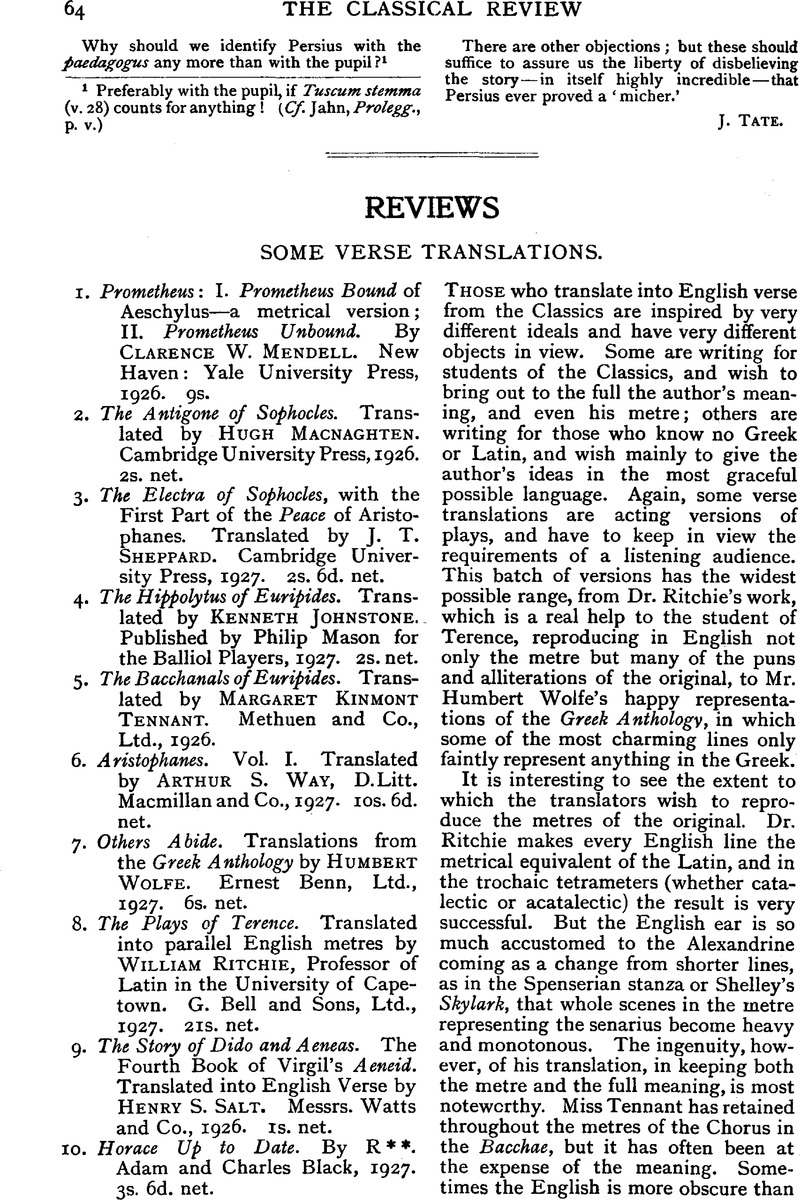No CrossRef data available.
Article contents
Some Verse Translations - 1. Prometheus: I. Prometheus Bound of Aeschylus—a metrical version; II. Prometheus Unbound. By Clarence W. Mendell. New Haven: Yale University Press, 1926. 9s. - 2. The Antigone of Sophocles. Translated by Hugh Macnaghten. Cambridge University Press, 1926. 2s. net. - 3. The Electra of Sophocles, with the First Part of the Peace of Aristophanes. Translated by J. T. Sheppard. Cambridge University Press, 1927. 2s. 6d. net. - 4. The Hippolytus of Euripides. Translated by Kenneth Johnstone. Published by Philip Mason for the Balliol Players, 1927. 2s. net. - 5. The Bacchanals of Euripides. Translated by Margaret Kinmont Tennant. Methuen and Co., Ltd., 1926. - 6. Aristophanes. Vol. I. Translated by Arthur S. Way, D.Litt. Macmillan and Co., 1927. 10s. 6d. net. - 7. Others Abide. Translations from the Greek Anthology by Humbert Wolfe. Ernest Benn, Ltd., 1927. 6s. net. - 8. The Plays of Terence. Translated into parallel English metres by William Ritchie, Professor of Latin in the University of Capetown. G. Bell and Sons, Ltd., 1927. 21s. net. - 9. The Story of Dido and Aeneas. The Fourth Book of Virgil's Aeneid. Translated into English Verse by Henry S. Salt. Messrs. Watts and Co., 1926. is. net. - 10. Horace Up to Date. By R **. Adam and Charles Black, 1927. 3s. 6d. net.
Published online by Cambridge University Press: 27 October 2009
Abstract
An abstract is not available for this content so a preview has been provided. Please use the Get access link above for information on how to access this content.

- Type
- Reviews
- Information
- Copyright
- Copyright © The Classical Association 1928
References
1 Mr. Sheppard leaves unsettled a question which has often interested me. What happens to the Paedagogus after 1382? There is no need for him to enter the palace, as Jebb makes him. I suggest that he made it his object to inform Aegisthus on his return, and that a clue to this is given by the fact that his actual words (730) are quoted in 1444 by Aegisthus.


